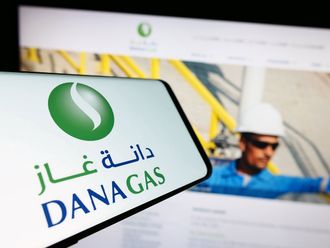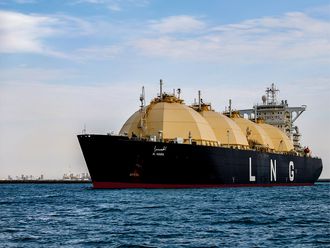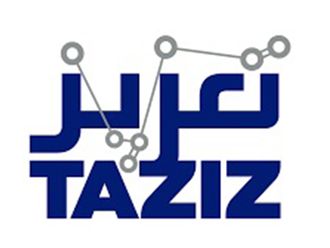Doha: Qatar underlined its status as the undisputed exporting giant of liquefied natural gas, or LNG, yesterday when it celebrated reaching its long-awaited 77 million tonnes annual production capacity of the super-cooled fuel — at a time when the market is facing a supply glut.
"It's a huge achievement," said Kamel Al Harami, an independent energy analyst based in Kuwait. "Especially bearing in mind Qatar only sits on the third largest reserve of gas after Russia and Iran."
Natural gas is the lifeblood of Qatar's economy, spurring double digit growth of 16 per cent this year and an expected 21 per cent next year. Nearly 15 years after the first cargo of LNG left its shores, gas has made Qatar one of the world's richest nations.
Its LNG expansion programme has centred around the construction of 14 so-called ‘supertrains,' or liquefaction facilities, operated by state-run firms RasGas and Qatargas. Qatargas' train 7 is the last remaining facility and is expected to come on stream early next year.
LNG is gas cooled down so it becomes liquid and can be transported in special vessels over long distances.
Worldwide markets
Qatar ships its LNG on specially designed tankers to 23 markets across the word including Asia, Europe and the US. While it has been the largest global producer of LNG for some time, a yearly export quota of 77 million tonnes, or 105.1 billion cubic metres, is the equivalent to 21 per cent of Asia-Pacific's entire annual gas consumption, based on consumption data from last year. Qatar's output of 77 million tonnes is also enough to supply the whole of the US for 59 days, according to official government data.
But Qatar reaches this milestone amid a massive supply glut that is unlikely to disappear in the next 10 years, according to a report from the Paris-based International Energy Agency last month, casts an unwelcome shadow over the international market.
Discovery of shale gas in the US, a type of natural gas that is extracted from shale rock, has exacerbated the glut and altered the global supply picture of the fuel.
"The shale gale in the US has clearly upset Qatar's initial strategic calculations, forcing it to enter into tougher competition about market shares in Europe and Asia," said Samuel Ciszuk, a London-based senior analyst at IHS Energy.












